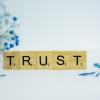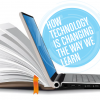personal improvement
 |
Mutual Trust: A Foundation for Self-Organized High Performing Agile Teams One of the major contributors to an agile project's success or failure are the people. When it comes to people and self-organized high-performing teams, mutual trust is the foundational and one of the most critical factors. This article focuses on mutual trust in the context of agile software development, the 7 principles, and related steps on how this can be achieved towards building self-organizing and high-performing teams.
|
|
 |
8 Winning Qualities of a Scrum Master A good leader keeps everything in order. In this fast-paced era where agile methodologies have become a more often used framework, a good Scrum Master is what is needed. But what makes a good Scrum Master?
|
|
 |
Learning the Skills of a Professional Software Developer We hire for programming language skills or framework experience, but these are the kinds of things that any developer should be able to pick up quickly. David Bernstein says we should be hiring based on talent instead, and mentoring developers to write code that can be maintained and extended more easily. These critical skills are best learned on the job, which is why mentoring is so valuable.
|
|
 |
Using Agile to Learn Anything Acquiring new skills is always admirable, and it can even help you find new opportunities in an increasingly competitive job market. By going in with a plan and organizing your self-improvement activities, you’ll be learning new skills in no time. Agile can help. Here's how forty-five minutes a day and a structured approach using kanban can set you up for success.
|
|
 |
You Get What You Tolerate We’ve all worked with a talented developer who can be a frustrating challenge to manage. First-time managers may unknowingly encourage bad behavior. There are several innovative ways to resolve the situation.
|
|
 |
How Technology Is Changing the Way We Learn Modern technologies like virtual reality, cloud-based systems, and measurement of content have disrupted how we learn. Standards have evolved to improve how learning material can be published to any device.
|
|
 |
Do You Really Want to Be a Manager? The majority of managers are promoted due to their software development expertise. But becoming a successful manager requires a drastic change of focus. There is a set of expectations to consider before making that leap to the “dark side.”
|
|
 |
Saying No to More Work We’ve all been placed in the situation where a boss asks you to perform more work than you can possibly handle. Johanna Rothman knows firsthand that there is a better way to respond that benefits you and your manager.
|
|
 |
Motivating a Millennial Workforce: An Interview with Nikki Henry Nikki Henry, founder and CEO of Ladies Leading Ladies, talks about where to find great millennial employees to hire and how to keep them motivated. Nikki says millennials are very passionate and purpose-focused, and treating them as individuals will help keep them at your company for the long term. She shares tips for attracting, retaining, and working effectively with the millennial workforce.
|
|
 |
8 Ways to Ruin Your One-on-Ones: An Interview with Jason Wick
Video
In this interview, Jason Wick, senior manager at MakeMusic, discusses his STAREAST presentation about eight ways you could be making your one-on-one meetings completely useless. He discusses in depth what he feels is the number one way to ruin these meetings: holding back on feedback. He also offers advice on how you can educate your team leader to avoid the pitfalls that lead to ineffective one-on-ones.
|
|
 |
Emotional Intelligence in Testing: An Interview with Julie Gardiner
Video
Julie Gardiner, head of QA at Testing Rainmaker Limited, discusses the STAR conferences Test Lab she leads, which allows people to attend virtually and even win prizes for best test report and best bug report. She also talks about her upcoming book, and why emotional awareness, self-management, empathy, and relationship building are important skills for testers.
|
|
 |
Experiences at STAREAST 2018: An Interview with Michael Sowers
Video
Michael Sowers, TechWell’s IT director and program chair for STAREAST 2018, discusses some of the activities, presentations and networking opportunities at the event. He also discusses what to expect at the all-new Agile Testing Days.
|
|
 |
Hacks to Becoming a Mindful Agile Tester
Slideshow
Have you ever felt like you've been working on multiple tasks all day long, but at the end of the day when you review your work, you realize you haven’t accomplished anything concrete?
|
Raj Subrameyer
|
 |
Creative Trespassing: Sneak More Imagination into Your Work and Get More Done
Slideshow
After years of smuggling creativity into the corporate sector without getting busted, Tania Katan has learned that we don’t need to be in a job that is distinctly creative in order to be distinctly creative in our job.
|
Tania Katan
|
 |
Evolution—Not Revolution: Transforming Your Testing
Slideshow
You may have heard the saying “The only constant on any project is change.” Yet the prospect of change is rarely welcomed—either personally or professionally. How is it that we still believe that these changes apply to others but not to us? Julie Gardiner says that now is the time to re-evaluate and transform how we do testing in order to deliver more value to organizations—from a people, processes, and tools perspective. Join Julie as she shares current experiences of transformations and lessons learned within different organizations. She discusses an automation framework that ended up being thrown away, revamping processes, and tools and techniques to transform your testing. This thought-provoking session will give you the courage and ideas for how you can add even more value to your company.
|
Julie Gardiner
|
 |
The Art of Software Investigation
Slideshow
Although processes and tools play an important role in software testing, the most important testing tool is the mind. Like scientists, testers search for new knowledge and share discoveries—hopefully for the betterment of people’s lives. More than sixty years ago, William I.B. Beveridge reframed discussion of scientific research in his classic book The Art of Scientific Investigation. Rather than add to the many texts on the scientific method, he focused on the mind of the scientist. Join Ben Simo as he applies Beveridge’s principles and techniques for scientific investigation to software testing today. Learn to discover and communicate new knowledge that matters; to think—and test—like scientists; and to continually prepare, experiment, exploit chance, imagine productively, apply intuition and reason, tune observation, and overcome resistance.
|
Ben Simo
|
Visit Our Other Communities
AgileConnection is a TechWell community.
Through conferences, training, consulting, and online resources, TechWell helps you develop and deliver great software every day.
